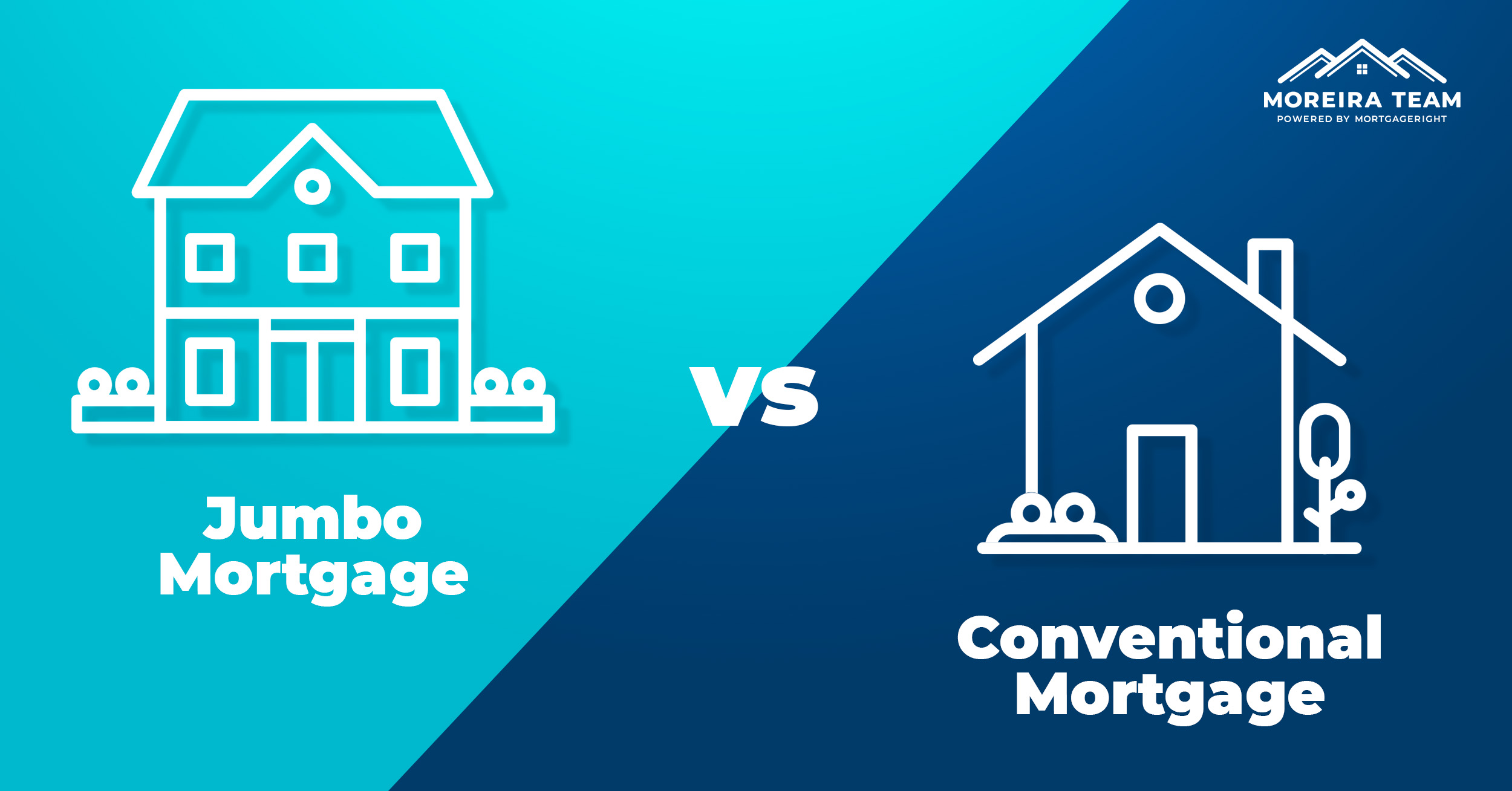
In this article
Which Is Better: Conventional Vs. Jumbo Loans?
Overview of Conventional vs. Jumbo Loans
Usually, the choice between a conventional or jumbo loan is an easy one to make. A majority of conventional loans are required to stay inside the conforming limits. This means that in most parts of the U.S. the amount of your loan would need to be less than $806,500. Typically you will get a jumbo loan if you need a larger loan amount.

There are of course some important differences that you need to be aware of when refinancing or buying using a jumbo loan. For example, you will need a larger downpayment and a higher credit score. The following are important things you need to know.
What is the Difference Between a Conventional Loan and a Jumbo Loan?
A majority of conventional loans are required to remain within the local loan limits that are set by Freddie Mac and Fannie Mae. On the other hand, jumbo loans are for mortgages in amounts that are over the conforming loan limits. So basically jumbo mortgages pick up at the point of the maximum conventional loan limit.
In most parts of the United States in 2024, the conforming loan limits on single-family homes max out at $806,500. This means typically jumbo loans will be any amount over $806,500. However, there are more generous loan limits in certain expensive real estate markets. In the country’s most expensive areas, there are single-family home conforming loans available for close to $1.2 million.
The limits on jumbo loans vary by lender. However, they typically go for millions. So you will most likely need to take out a jumbo mortgage if the amount that you need to borrow is more than what the local loan limits are.
A Note on ‘Conforming’ and ‘Conventional’ Loans:
A conventional loan is technically any mortgage that the federal government does not back. So a conventional loan is any loan that is not a USDA loan, VA loan, or FHA loan.
A majority of conventional loans can be referred to as “conforming loans” since they conform to the lending requirements of Freddie Mac and Fannie Mae (including the previously mentioned loan limits). Quite often the term terms ‘conforming’ and ‘conventional’ are used interchangeably. Here in this article ‘conventional’ is being used to refer to conforming loans that meet the standards of Freddie and Fannie.
Conventional Loan vs. Jumbo Loan Comparisons
Jumbo and conventional mortgages have other differences in addition to loan size. Since jumbo loans are a lot larger, there are tougher underwriting standards imposed by mortgage lenders for this kind of loan. They need to be extra careful that the homeowner will be able to afford to make the monthly payments.
So what does this mean for conventional vs. jumbo loan requirements? The following is a brief overview:
Maximum Loan Amount
Conventional Loan: $806,500 to $970,800 depending on what the local house prices are.
Jumbo Loan: As much as several million dollars. Will vary from one lender to the next.
Minimum Down Payment
Conventional Loan: 3%
Jumbo Loan: Normally 10% to 20%
Private Mortgage Insurance (PMI) Required?
Conventional Loan: Yes, if the downpayment is less than 20%
Jumbo Loan: Normally yes if the downpayment is less than 20%
Minimum Credit Score
Conventional Loan: 620
Jumbo Loan: Frequently 680-740
Maximum (DTI)
Conventional (Conforming) Loan: Typically 43%
Jumbo Loan: Typically 45%
Required Cash Reserves
Conventional Loan: 0 to 6 months in savings for homeownership expenses
Jumbo Loan: Maximum of 12 months in savings for homeownership expenses
Eligible Types Of Property
Conventional (Conforming) Loan: 1-4 unit properties, which include investment properties, vacation homes, and primary residences
Jumbo Loans: Broad range. Individual lenders set their own restrictions.
It is very important to be aware that since a jumbo mortgage is a type of non-conforming loan (also referred to as a ‘non-QM loan’) that lenders are allowed to make their own requirements. Therefore, things such as minimum downpayment requirements, maximum loan amount, and minimum credit score can vary quite a bit between lenders when you comparing jumbo loans.
So if you are on the borderline of being able to qualify for a jumbo loan then give us a call today or fill out a Quick Quote below and a Licensed Mortgage Advisor will be in touch right away.

